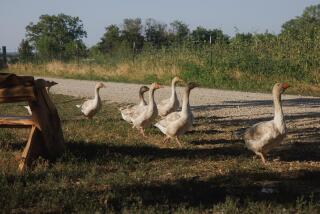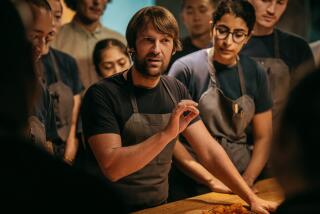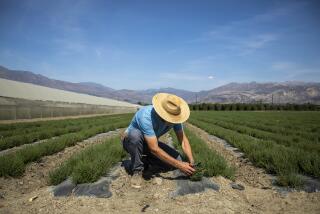To Feed World’s People, Modern Practices Must Supplant Organic Fads
- Share via
Organic farmers have every right to grow crops using any practice they deem suitable. Consumers who buy organic produce deserve that option, and a growing number obviously perceive a benefit.
Yet when deference to a niche segment begins to adversely affect our ability to produce food most efficiently, it’s time to dispel some myths--because despite its proponents’ claims, organic agriculture is not capable of supplying our country’s food needs while protecting the environment.
One myth is that organic food is more nutritious and better tasting. Researchers at New Zealand’s University of Otago just completed a review of about 100 studies examining those claims and found no convincing evidence to support them. In the March 2001 issue of Nature magazine, University of Edinburgh professor Anthony Trewavas stated that “hundreds of rigorous tests have failed to reveal better-tasting properties or improved nutritional value but have consistently shown that organic produce has lower nitrate and protein content.”
This might seem counter to the experience of shoppers who have tasted fruits or vegetables right off the truck of a local organic farmer. But that produce tastes so good because it is picked fresh and ripe. A conventional farmer, using pesticides and fertilizers, can similarly impress a farmers market shopper.
In fact, agronomic research has shown that soil type, plant varieties, irrigation and climate have more to do with nutrition and eating quality than any other factors. And the higher-profitability factor that has led some farmers to switch to organic is rapidly vanishing as more and more organic crops hit the market.
Yet the myths of better nutrition and eating quality pale in comparison to assertions that organic production techniques are a viable means of protecting the environment and supplying the nation’s food supply. Researchers at the Hudson Institute recently analyzed pesticide use in the U.S. and ran some “what-if” calculations on switching to totally organic pest control techniques.
Applications of sulfur, an element used for disease control by both organic and conventional fruit and vegetable farmers, would increase from the current U.S. annual use of 78million pounds to 840million pounds. Use of copper compounds, also important to organic producers, would increase from 13.7million pounds to 116million pounds. Should farmers be forced to make a wholesale switch to copper and sulfur, we’d face the real prospect of long-term soil and environmental contamination from these broadly toxic elemental pesticides.
Food producers face some daunting statistics regarding a growing world population: 9billion people expected by 2050, more affluent in general than we are now, will demand nearly three times as much food as is consumed today. Farmers today are doing well by using only 37% of the Earth’s land area for farming and ranching, according to the U.N. Food and Agriculture Organization. Society will need to depend on modern farming practices to produce the additional food needed without plowing billions of acres of wildlife habitat. Only high-yield production agriculture can accomplish that.
When it comes to a healthy, plentiful food supply, modern farming technology, not organic trendiness, offers the more realistic solution to feeding a growing world population.






